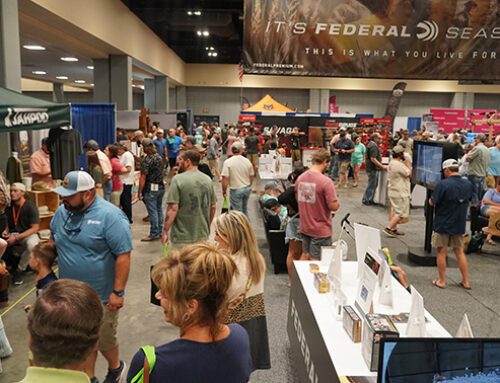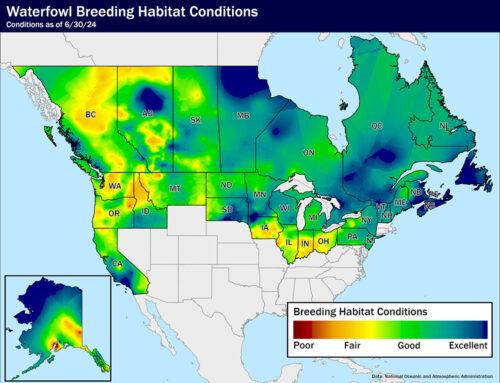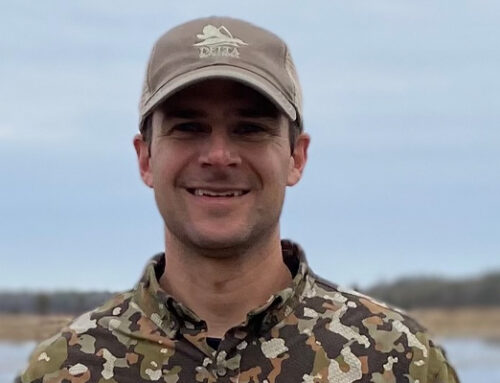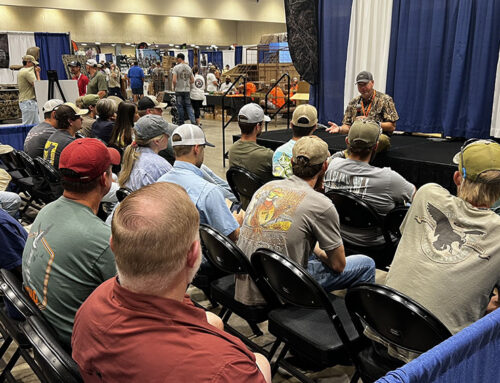Wildlife Habitat Canada Grants Support Delta Waterfowl Duck Production and HunteR3 Programs

September 19, 2022
WINNIPEG, MANITOBA — Grants from Wildlife Habitat Canada have been awarded to Delta Waterfowl to bolster the organization’s Hen House program, as well as HunteR3 recruitment and advocacy efforts.
A $50,000 WHC grant will support the growth and management of Delta’s Hen House program in Canada. The Hen House program is a powerful tool for duck production. By providing a safe, productive nest site to mallard hens, these over-water nest structures make a successful hatch up to 12 times more likely. For hens nesting in grass cover in many areas, nest success is often less than 5 percent — a dismal rate that falls below the necessary level to maintain a healthy duck population. In Hen Houses, nest success typically ranges 60 to 90 percent.
Currently, Delta Waterfowl maintains nearly 10,000 Hen Houses in North America — 6,800 of which are in Canada. The WHC grant will be used to build and install 100 new Hen Houses in Canada, as well as to support the maintenance of 3,500 existing nest structures.
A second $65,000 WHC grant will help secure the future of waterfowl hunting in Canada by supporting Hunter3 efforts of The Duck Hunters Organization. HunteR3 includes First Hunt, the largest waterfowl-specific hunter recruitment program in North America, the University Hunting Program, which educates non-hunting wildlife students about hunting’s role in conservation, and Defending the Hunt, which expands and protects waterfowl hunting opportunities.
WHC funding will help support 1,000 participants and volunteers to take part in mentored hunts, workshops and camps. In addition, it will boost UHP events in Alberta, Manitoba, Ontario and Prince Edward Island. Importantly, the grant supports Delta’s proactive efforts to make it simpler to become a hunter by providing additional opportunities and removing barriers, and also helps defend hunting when our chapters and members face local issues.
“It’s an honor to receive these grants from the WHC, especially when the funding comes from duck hunters,” Fisher said. “The WHC’s generous support allows us to dedicate those funds to programs that will benefit both ducks and duck hunters.”
WHC grants are funded by the sales of the Canadian Wildlife Habitat Conservation Stamp and Print, commonly called the “duck stamp.” This stamp, costing $8.50, is a required component of a legal waterfowl hunting permit. Using the revenue, WHC offers grants to conserve, restore and enhance wildlife habitat, foster conservation leadership, promote conservation contributions of waterfowl hunters, and encourage waterfowl hunting participation. Since 1985, the stamp has contributed $55 million toward waterfowl conservation.
For more information about purchasing the Canadian duck stamp and print, visit WHC.org.
Delta Waterfowl is The Duck Hunters Organization, a leading conservation group working to produce ducks and secure the future of waterfowl hunting in North America. Visit deltawaterfowl.org.
For more information about Delta Waterfowl’s work in Canada, please contact Jim Fisher at jfisher@deltawaterfowl.org.






Leave A Comment